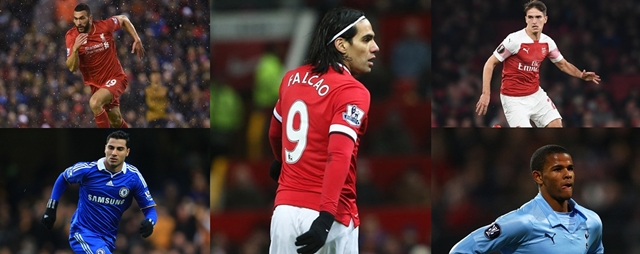On the back of yesterday’s piece on the five best Premier League loan signings from the past, I thought it was only fair to compliment the yin with it’s yang, so today we look at five of the worst Premier League loan signings from the past.
The same guidelines as yesterday’s piece applies to this one, with an entry apiece from all Top 6 Premier League clubs with the exception of Manchester City due to their prolonged absense from the league at the start of the millenium.
Read More: Five of the best Premier League loan signings from the past
5 – Steven Caulker, Liverpool, 2015/2016
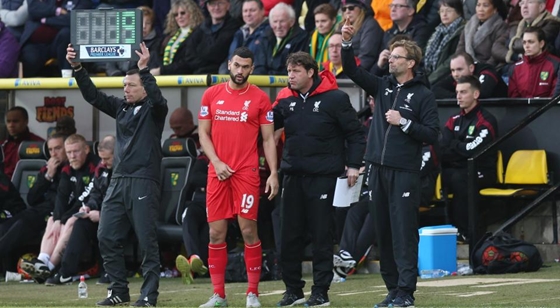
For many years now, there has been a humorous take on how Liverpool ransack Southampton when they need a player but swiping defender Steven Caulker away from an already ongoing loan spell probably doesn’t spring to the forefront of your memory like Adam Lallana or Sadio Mane.
During the 2015/2016 season, Caulker was halfway through an intended one-year loan spell on England’s South-coast when Liverpool felt compelled to bring the Queens Park Rangers loanee to Anfield in the midst of a mini injury crisis in defence.
Caulker is no stranger to loan spells, with the hastily formed half-season loan to Liverpool being the fifth of his career. What the English defender may have found strange was Jurgen Klopp’s decision to completely forgo Caulker’s natural position and the reason he was brought in, to use him as the metaphorical kitchen sink in the dying minutes of games as a centre-forward. Big, tall, imposing defenders being lumped up forward in times of desperation is an age-old art in the beautiful game, but Caulker does not possess the threat of a prime John Terry or the penchant to score goals of a Ronald Koeman.
As expected the experiment bore very little success, with Caulker’s biggest contribution being a botched volley against Norwich City which ping-ponged its way into the path of Adam Lallana to bounce home a 95th minute winner in an exhilarating 4-5 victory at Carrow Road. To say his role in the late winner was ‘providing a nuisance‘ would have been generous.
Caulker’s peculiar Liverpool spell resulted in just FOUR minutes of Premier League football in three games, but he did start in an FA Cup 4th Round tie against West Ham United that ended 0-0. His four appearances would all come within the space of 27 days and he didn’t play a single game beyond January adding further confusion.
The highly forgettable, rather bemusing loan deal resulted with the only highlight being a mishit shot, as Liverpool would go on to finish 8th in the Premier League. Caulker hasn’t decided to forge a career as a buccaneering number 9 since his minutes foray up top and returned to QPR at the expiration of his loan deal. He’s since moved outside of the country with a season in Scotland with Dundee and currently plies his trade for Alanyaspor in the Turkish Super Lig.
4 – Ricardo Quaresma, Chelsea, 2008/2009
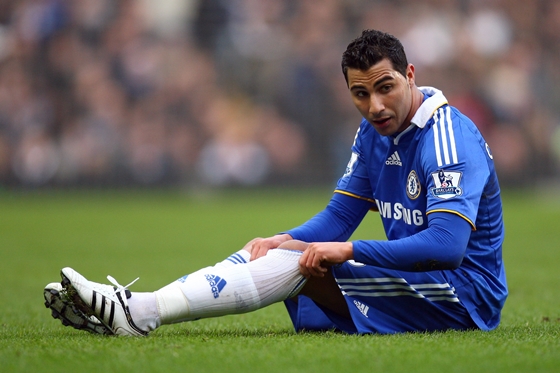
Its with great displeasure that I have to put Portuguese winger Ricardo Quaresma on this list because I am a huge fan and have been for 15 years, but alas, the modern day ‘YouTube footballer‘ would dazzle with stepovers, backheels, rabonas and trivela passes in his native country creating quite the buzz in the mid-2000s.
A product of the Sporting Lisbon academy once mentioned in the same breath as Cristiano Ronaldo and eventually taken to Barcelona for a solitary season as a 19-year old, Quaresma was linked with a move to a major European club for several years after an impressive four-season stay at Porto between 2004 and 2007. A big money move to Inter Milan in the summer of 2008 finally arrived and Quaresma’s shone in his debut against Catania as his deflected trivela cross was slapped into his own net by goalkeeper Giuseppe Mascara. After failing to capitalise on his promising start, 18 uninspiring performances later, Inter manager Jose Mourinho would send Quaresma on loan to his former employers, Chelsea.
Quaresma’s 2008/2009 campaign didn’t get any better in England as he racked up just five appearances and one start. He did provide an assist for Alex in an FA Cup victory at Coventry City en route to Chelsea winning the trophy, but his spell was less than eventful and a lasting impact was absent.
Whilst Quaresma’s loan wasn’t a disaster, it was very forgettable and Chelsea, unsurprisingly didn’t seek to bring him in on a permanent basis. The biggest disappointment was that for years Quaresma had been touted for a move away from Porto to a European powerhouse in one of the top leagues and his spells at both Inter Milan and Chelsea derailed the Quaresma hype train almost immediately.
Quaresma would spend just one more season at Inter Milan before heading to Turkey with Besiktas in 2010. Enjoying a successful stint in the Super Lig, his time ended prematurely when an ugly altercation with team-mate Nihat Kahveci and manager Carlos Carvalhal resulted in the early termination of his contract in December 2012. A six-month spell in the Middle East with Al-Ahli Dubai followed, before he’d embark on a double return sequence, first to Porto once more, and later, Besiktas, where he’d amend the wrongs of his first spell by helping the Kara Kartallar to back-to-back Super Lig titles. Quaresma would play a significant role in Portugal’s Euro 2016 success, scoring the winner in Extra-Time against Croatia in the Round of 16 with a tap-in and scored against Iran at the 2018 World Cup.
3 – Denis Suarez, Arsenal, 2018/2019
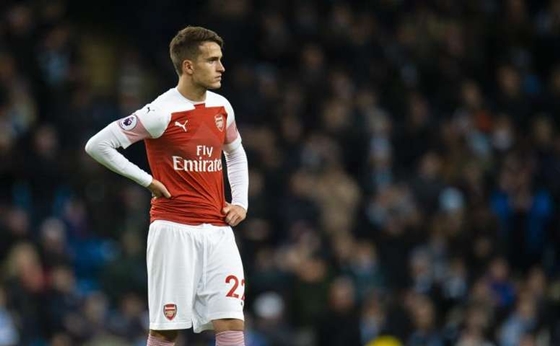
Probably not something Arsenal fans would like to see; a promising, young Spanish midfielder, sent on loan to Arsenal from a Spanish powerhouse that didn’t work out. Here’s hoping for Arsenal’s sake that Dani Ceballos’ fate this upcoming season isn’t reminiscent of Denis Suarez’s last year.
Arriving from Barcelona after making just eight appearances in the first half of the 2018/2019 season, both Arsenal manager Unai Emery and Suarez were hoping the diminutive Spaniard’s arrival would be a success. The pair would reunite with each other after the Suarez’s successful loan spell under Emery’s tutelage at Sevilla in the 2014/2015 season. Arsenal reportedly paid €2.3 million for the loan of the former Manchester City youth graduate and had a €20 million option to buy at its expiration.
Emery looked to add numbers in midfield as his team looked to mount a charge for a Champions League qualification place and pursue Europa League triumph, so its incredibly baffling how Suarez only made six substitute appearances, accruing a palty 95 minutes of football, especially after Aaron Ramsey’s hamstring injury in April ruled the Welshman out for the remainder of the season. Rather predictably, he didn’t manage to notch a single goal or assist.
Nearly two months since the charade ended, I’m still left trying to decipher why it happened in the first place. Suarez had been a mainstay in Europa League level Spanish teams in the past with his aforementioned successful loan spell at Sevilla and another solid season at Villarreal. The back-to-back seasons prompted Barcelona to activate a buy-back clause where he’d return from Villarreal and go on to rack up 71 appearances for the Catalans in two-and-a-half seasons.
Ultimately, the loan was a resounding failure due to the lack of game time Suarez received, in spite of Ramsey’s injury and the fact Arsenal actually paid a fee for the move. Suarez has gone on to claim that he was only 50% fit during his spell in North London due to a pelvic injury,which would explain his lack of game time, but only add further substance to the deal’s overall failure. Suarez has since moved to Celta Vigo this summer which could see him return to the level that he showed at Sevilla and Villarreal.
2 – Fraizer Campbell, Tottenham Hotspur, 2008/2009
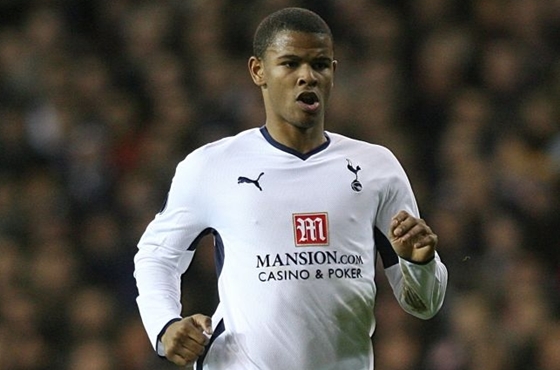
Picture this, you’ve just had Manchester United poach one of your best players for the second time in a two year period, it’s deadline day, Robbie Keane has also been sold, the only forwards you have at the club are Roman Pavlyuchenko, Darren Bent and Giovani Dos Santos and you’re signing someone called…Campbell. Congratulations, you’ve just canvassed the summer of 2008 as a Spurs fan.
Juande Ramos’ time at Spurs was numbered after a disastrous start to the 2008/2009 season picking up just two points from eight games. He did himself no favours during the summer by selling Robbie Keane to Liverpool and selling Dimitar Berbatov to Manchester United, respectively, with minutes remaining of the transfer window for the latter. This came just months after he’d also sold Jermain Defoe in January, earlier in the year. Ramos’ solution to selling three first-team worthy strikers in a nine-month period was to secure Fraizer Campbell on a one-year loan as part of the Berbatov transfer. A 21-year-old who couldn’t make the grade at Manchester United and was coming off the back of a 15-goal season in the Championship, it was like replacing a Ferrari Formula One car with Fred Flintstone’s Flintmobile.
Campbell was initially set to rejoin to Hull City, whom he’d been on loan with during the 2007/2008 season, and in hindsight, a move to the Premier League debutants would have been a much better outcome for all parties involved. Campbell scored just three goals in 22 appearances for Spurs, with his one impressive performance coming in a 4-0 rout of Liverpool in the League Cup, scoring twice and assisting Pavlyuchenko for the opener. His only other goal would come in a Premier League defeat to Fulham.
Unsurprisingly, Ramos’ unneccessary squad surgery and subsquent poor form eventually saw him sacked just eight weeks after his deadline day debauchery with Harry Redknapp would take over the reigns. In true ‘Arry fashion he’d re-sign Jermain Defoe and Robbie Keane in January diminishing Campbell’s chances of game time, before guiding Spurs to a respectable 8th placed finish.
Spurs had seen some extremely poor strikers in the years prior to Campbell’s arrival – Grzegorz Rasiak, Mounir El Hamdaoui, Helder Postiga, Bobby Zamora to name just a quartet, acting as complete polar opposites to the likes of Teddy Sheringham, Freddie Kanoute, Les Ferdinand and the aforementioned trio of Keane, Defoe and Berbatov.
Whilst Campbell wasn’t solely to blame for his failings, he was forced into a Premier League team with no prior experience and it showed. He simply wasn’t good enough and ultimately that would prove to be the case for his career, as despite being in the Premier League for the next eight seasons with Sunderland, Cardiff City and Crystal Palace, he’d score just 17 goals in 139 appearances, taking his Premier League total to 150 appearances and 18 goals, in total.
Campbell would again be courted by Hull in the summer of 2009, with the Tigers bidding £6 million, but he’d eventually snub them for the second time choosing to move to Sunderland in a £3.5 million deal with add-ons. He would finally rejoin Hull in the summer of 2017, as the then-Championship outfit picked him up on a two-year contract. He’d scored just 18 goals in 77 appearances in the second tier and is currently a free agent after his contract expiration.
1 – Radamel Falcao, Manchester United, 2014/2015
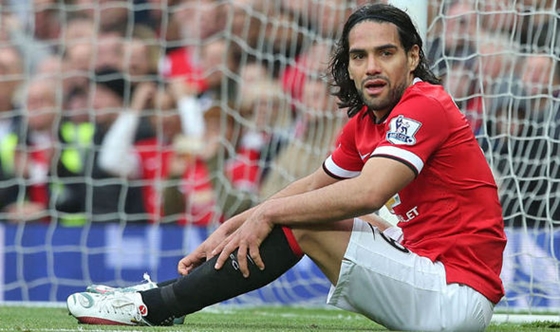
If I was typing this piece during the summer of 2016, there’s a good chance that this man would have been the glaringly obvious frontrunner for this list and with fair reason.
Radamel Falcao embodied his El Tigre moniker between 2009 and 2013 tearing teams apart both domestically and in Europe. With an absurd record of 142 goals in 178 apperances for Porto and Atletico Madrid during that period, Falcao was pound-for-pound the best striker in the world.
Falcao would be persuaded into a big money €60 million move to Ligue 1’s newly-promoted Monaco in the summer of 2013 earning a rumoured €18.2 million per year. Falcao was joined by former Porto team-mates James Rodriguez and Joao Moutinho, as well as Real Madrid’s Ricardo Carvalho, as Monaco looked to challenge Paris Saint-Germain with a big money approach of their own.
Falcao’s career would find itself in the grips of a dark cloud halfway through the season as he suffered a severe ACL knee injury in a Coupe de France tie against fourth-tier Monts d’Or Azergues. Falcao was enjoying a good debut season in France with 11 goals in 19 games and the injury would ultimately rob him of his place in Colombia’s 2014 World Cup squad, as he generously pulled out from Jose Pekerman’s 30-man preliminary squad, claiming he did not feel 100 percent.
After recovering from his injury throughout the summer, Falcao would start the opening weeks of the 2014/2015 season well with two goals in three appearances, before joining Manchester United on a one-year loan. He joined with United having an option to buy the Colombian for a fee of £43.5 million at the end of the loan, having paid £6 million for the loan itself, as Monaco began to reshape their approach, also selling James Rodriguez to Real Madrid.
Falcao would start the season slowly with United scoring once and providing two assists in his first five games, but he would never maintain any momentum at Old Trafford. Any future beyond his designated loan spell was shot down in March as he was demoted to Manchester United’s under-21 team by manager Louis van Gaal.
Falcao would score just four goals in 29 appearances for Manchester United, underlining a sensationally poor return from someone with so much ability. Falcao’s previous records with Porto, Atletico and to a lesser extent Monaco, left fans in England holding high expectations upon his arrival in Manchester, despite returning from a serious injury, to which he simply didn’t deliver. Falcao’s time in England wasn’t over though, as he’d join Chelsea for the 2015/2016 season, enduring an equally uninspiring spell with just a solitary goal in 12 appearances; a tenure which could have seen him feature on this list as Chelsea’s entry.
Fortunately, since his English disaster Falcao has managed to refind his form with Monaco and is now the club’s fourth highest goalscorer and has been club captain since 2016. The forward has scored 70 goals in 118 appearances, down on his previous rate at Porto and Atletico Madrid, but still a magnificent return. His rediscovery of form, Monaco’s pragmatic change in approach and the emergence of once-in-a-generation talent, Kylian Mbappe, lead Monaco the 2016/2017 Ligue 1 title and a Champions League Semi-Final. Falcao is still at Monaco, six years after first joining and he’d also make his long awaited World Cup debut in 2018, scoring against Poland in the Group Stage.
Whilst there’s no doubt Falcao’s time in England, especially with Manchester United was a monumental disappointment, it is pleasing to see him doing his undeniable talent justice again and not taking the route of other former greats who fail to find previous form and wither into the background until retirement.
